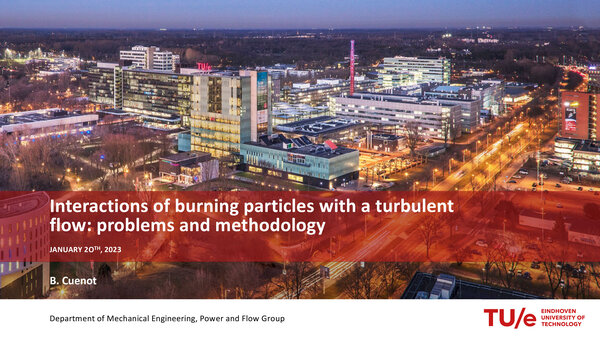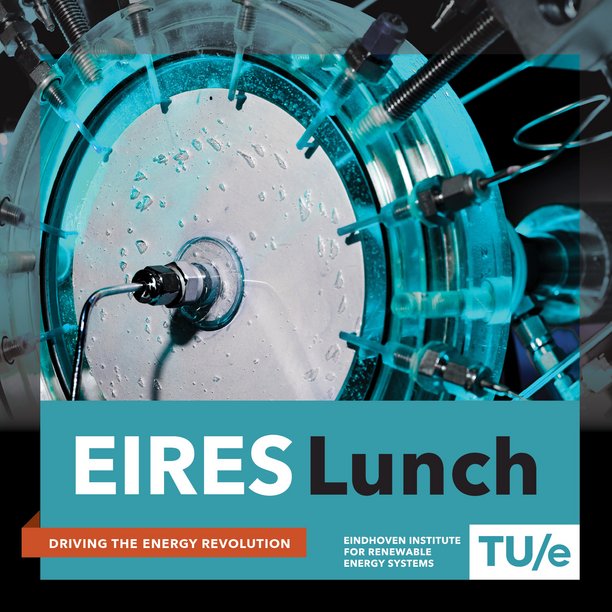EIRES Lunch | 1 December 2023
Topic:
European forests under climate change: mitigation and adaptation options
Organized & led by Principal Scientists:
- John van der Schaaf - TU/e | EIRES & Department of Chemical Engineering and Chemistry
- Niels Deen - TU/e | EIRES & Department of Mechanical Engineering
Speaker:
Gert-Jan Nabuurs - Wageningen University & Research (WUR)
Introduction:
Europe is covered for 40% with forests; covering almost as much area as the Brazilian amazon. These forests have all been managed for a long time and can be seen as part of N hemisphere rebound. There are more forests than ever since early Medieval times. The 16 million private owners and state forest services provide large volumes of wood to the industry. The sink was significant but is decreasing due to various reasons, a.o. climate impacts. At the same time the EU develops many new regulations concerning climate, sinks, bioenergy, and nature restoration. In the talk Gert-Jan Nabuurs will give an overview of these developments, as well as touch upon the role in climate mitigation.
EIRES Lunch | 10 November 2023
Topic:
Decentralized Energy Management: Ideas, Concepts and Example
Organized & led by Principal Scientists:
- Christina Papadimitriou - TU/e | EIRES & Department of Electrical Engineering
- Guus Pemen - TU/e | EIRES & Department of Electrical Engineering
Speaker:
Johann Hurink - University of Twente | Faculty of Electrical Engineering, Mathematics and Computer Science
Introduction:
The energy transition to reach the intended and also needed environmental goals relies on the integration of the different energy systems and will lead and already leads to an electrification of society. This process entails moving from a traditional energy system to ‘Smart Energy Systems’ with multiple demand/generation sources and asks for a synergy between ICT and emerging technologies (electric vehicles, solar panels, batteries, etc.) to keep reliable energy systems.
A core challenge in this process is to integrate local energy systems as active parts in the managing and control of the overall energy system. For this, next to technology oriented aspects, also innovative approaches combining ICT and the physical systems are needed, demanding multi-disciplinary research and approaches.
In this talk the focus is on ideas, concepts, approaches and examples in the area of Decentralized Energy Management based on the research within the multi-disciplinary ‘Energy Management’ group at the University of Twente.
EIRES Lunch | 13 October 2023
Topic:
Material challenges for Fusion reactors
Organized & led by Principal Scientists:
- Adriana Creatore - TU/e | EIRES & Department of Applied Physics and Science Education
- Silvia Gaastra-Nedea - TU/e | EIRES & Department of Mechanical Engineering
- Henk Huinink - TU/e | EIRES & Department of Applied Physics and Science Education
Speaker:
Roger Jaspers - TU/e | Applied Physics and Science Education - Group chair: Science and Technology of Nuclear Fusion
Introduction:
The landscape of nuclear fusion research has evolved significantly and is now entering a new phase: Notably, we are witnessing the construction of advanced fusion devices geared towards achieving power multiplication within the next decade. Furthermore, the fusion arena has recently seen a surge in privately-funded initiatives, attracting substantial investments amounting to billions of dollars. Additionally, the field has welcomed several technological innovations, of which the new generation of High Tc superconducting coils probably have the largest impact by offering possibilities for more compact reactors.
However, amidst this remarkable progress, the formidable material challenge still persist: to successfully demonstrate a fusion power plant, we must overcome the hurdles posed by exceptionally high heat flux, intense neutron flux, and the stringent demands of the fuel cycle. Addressing these material issues represents the highest priority in our pursuit of nuclear fusion as a viable energy source.
In this presentation, we will delve into the current state of fusion research, emphasizing the material challenges. Specifically, we will explore the effort and research of TU/e (in collaboration with DIFFER) to overcome these critical material obstacles.
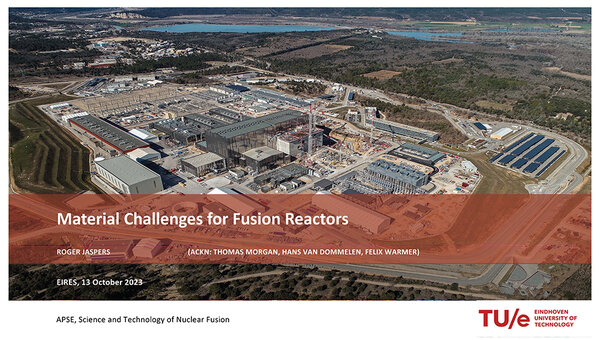
EIRES Lunch | 29 September 2023
Topic:
Necessity for better membranes in water electrolysis and CO2 electrolysis
Organized & led by Principal Scientist:
Niels Deen - TU/e | EIRES & Department of Mechanical Engineering
Speaker:
David Vermaas - TU Delft | Associate Professor TU Delft/Transport Phenomena (TP) | Faculty of Applied Sciences, department of Chemical Engineering
Introduction:
In the transition towards renewable energy, efficient and scalable conversion of electricity into fuels and chemicals is a crucial though challenging step. Electrolysis of water and/or CO2 can generate hydrogen and carbon-based pre-cursors to supply sustainable products to hard-to-abate sectors. This includes the use of carbon-based chemicals (e.g. for plastics) and e-fuels (e.g. for long-distance transportation). While water electrolysis is developed (and applied) for many years, the scale required for the current energy transition is enormous. Membranes play an important role in this technology, both for PEM electrolysis and AEM electrolysis.
In CO2 electrolysis, upscaling brings the additional challenges of water management and CO2 utilization. David will present the large impact of CO2 crossover in CO2 electrolyzers, and the indirect energy required for the regeneration of electrolytes and necessary CO2 capture. Again, the choice of the membrane and system configuration is critical, with a particular role for bipolar membranes. Bipolar membranes inhibit the CO2 crossover and allow earth-abundant electrode material, but require further development in terms of limiting current and catalyst-interaction. He will discuss the opportunities for membranes and system development towards efficient and scalable water/CO2 electrolysis.
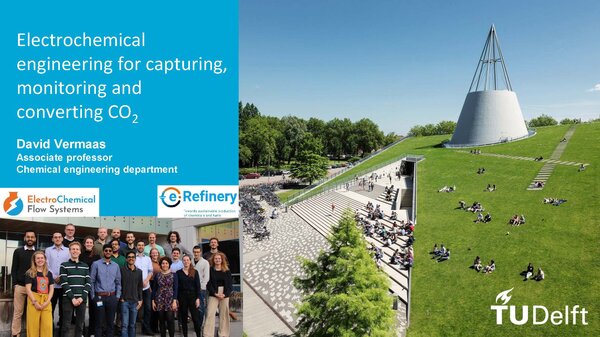
EIRES Lunch | 15 September 2023
Topic:
The digital transformation of the energy system and its implications
Led by:
Koen Kok - TU/e | Department of Electrical Engineering - Electrical Energy Systems (EES)
Organized by Principal Scientists:
Guus Pemen - TU/e | EIRES & Department of Electrical Engineering
Lisanne Havinga - TU/e | EIRES & Department of the Built Environment
Speaker:
Peter Palensky - TU Delft | Faculty Electrical Engineering, Mathematics and Computer Science - Department Electrical Sustainable Energy (ESE)
Introduction:
The power system experiences massive changes: Decarbonization, Decentralization, and Digitalization are the most prominent ones. The digital transformation is both, a solution to upcoming problems, but also a potential challenge.
This lecture will introduce you to the changes that our future power system will need to master, to the most important aspects of the digital transformation, and also present examples where digital technology already shows impact to power systems.
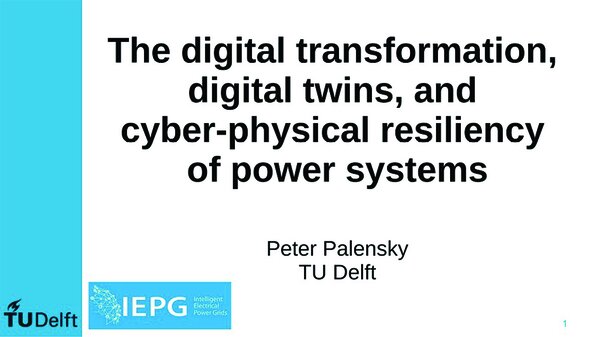
EIRES Lunch | 12 May 2023
Topic & Program:
Recent advances in materials for sorption-based thermal batteries
Organized by:
EIRES | Focus Area - Systems for Sustainable Heat
Led by Principal Scientists:
Henk Huink - Silvia Gaastra-Nedea
Speakers
- Dr. Alenka Ristić - Laboratory for Adsorbents, Department of Inorganic Chemistry and Technology, National Institute of Chemistry, Ljubljana, Slovenia
- Nataša Zabukovec Logar - Department of Inorganic Chemistry and Technolog, National Institute of Chemistry, Ljubljana and University of Nova Gorica, Slovenia
Introduction:
Thermal batteries hold a great promise to reduce the dependence of space heating and cooling on fossil fuels. The minimization of the mismatch between the thermal energy production (e.g. solar, waste heat) and its consumption relies on only a trivial amount of heat loss in sorption-based thermal batteries over longer periods of time. The process is based on the reversible sorption of vapours in porous solids, which is associated with the endothermic (desorption) and exothermic (adsorption) phenomena. The efficiency of this kind of thermal energy storage technology is determined by the performance of the sorbent used, which should, in addition to high thermal stability and good cycling performance, enables high sorption capacity of working fluid at low relative humidity and low regeneration temperature, if renewable solar energy is to be exploited.
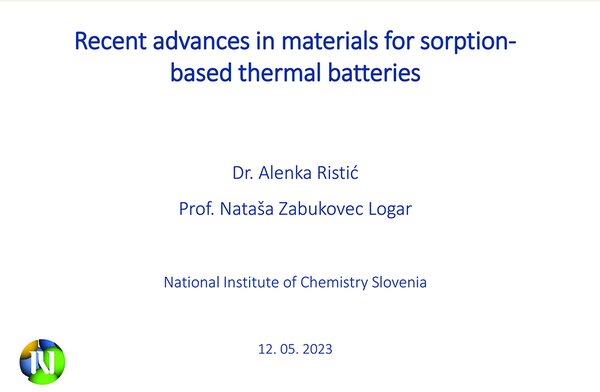
EIRES Lunch | 14 April 2023
Topic & program:
Sustainable Chemicals Production in 2050: Where, what, when?
Organized by:
EIRES | Focus Area - Engineering for Sustainable Energy Systems
Led by Principal Scientists:
Niels Deen - John van der Schaaf
Speaker:
John van der Schaaf - TU/e | Chemical Engineering and Chemistry & EIRES
Introduction:The coming decades we face a huge transition from fossil to renewable based economies. In the presentation an energy based analysis is made to determine which chemical processes should be done where, which resources we should use, how we should perform these processes, and what the implications are for equipment, materials, and chemical process design.
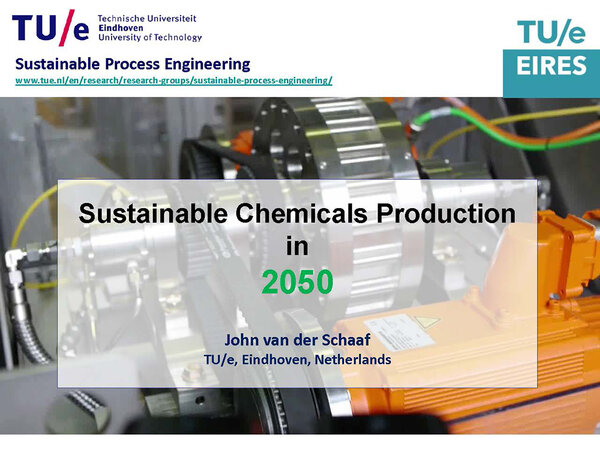
EIRES Lunch | 17 February 2023
Topic & Program:
Prospects of non-toxic perovskite semiconductors for solar conversion applications
Organized by:
EIRES | Focus Area - Chemistry for Sustainable Energy Systems
Led by Principal Scientists:
Adriana Creatore - Marta Costa Figueiro
Speaker:
Eline Hutter | Utrecht University
Introduction:
Understanding how to convert sunlight into useful forms of energy, such as electricity and fuels, will be crucial for a sustainable, circular economy. Semiconductor materials play a key role in photoconversion processes, as these materials can generate conductive electrons on absorbing light. It is a major challenge to design semiconductor materials that are stable, non-toxic, and high performance. Double perovskite semiconductors such as Cs2AgBiBr6 have recently been proposed as less toxic and more stable alternative to lead halide perovskites, and were successfully implemented as photoactive layer in optoelectronic devices. However, sunlight conversion efficiencies of double perovskite-based devices remain much lower than their lead-based analogues. In order to understand the factors that limit performance, we have used several time-resolved spectroscopy techniques to study the dynamics of electron transport, localization and recombination in Cs2AgBiBr6 double perovskites. We also show that partially replacing Bi3+ with other metals such as Sb3+ and Fe3+ tunes the light absorption and electron transport properties of these materials. From dye degradation experiments, we find that some of these compounds are active photocatalysts, whereas others deplete toxic dyes through adsorption. Finally, I will show examples of how combining materials can serve as a strategy to manipulate optoelectronic properties and performance.
EIRES Lunch | 03 February 2023
Topic & Program:
Market & technologies for high-temperature industrial heat pumps
Organized by:
EIRES | Focus Area - Systems for Sustainable Heat
Led by Principal Scientists:
Henk Huink - Silvia Gaastra-Nedea
Speaker:
Simon Spoelstra - TNO Energy Materials Transition
Introduction:
The industrial sector is worldwide responsible for roughly one third of the global GHG emissions. The use of heat represents 70-80% of the energy use of the industrial sector. At the same time, industry emits large amounts of waste heat to the ambient atmosphere. Industrial heat pumps are a technology that recovers and upgrades this waste heat to useable process heat. This presentation will give an overview of the industrial heat pump market and the technologies available and under development to meet the requirements of industry.
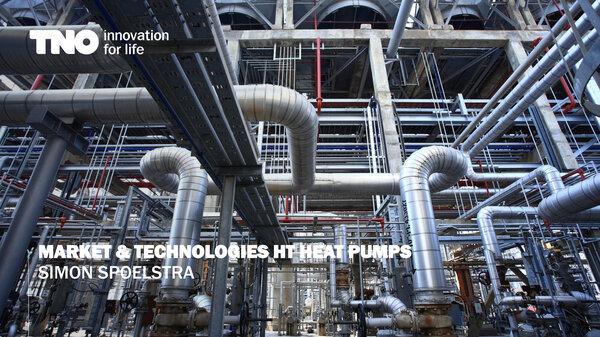
EIRES Lunch | 20 January 2023
Topic & program:
Interactions of burning particles with a turbulent flow: problems and methodology
Organized by:
EIRES | Focus Area - Engineering for Sustainable Energy Systems
Led by Principal Scientists:
Niels Deen - John van der Schaaf
Speaker:
Benedicte Cuenot - CERFACS and TU/e | Thermo-Fluids Engineering (TFE)
Introduction:
The interaction of a cloud of particles with a turbulent flow is a complex subject which depends on many parameters of the particles such as their density, their statistical distribution of size, their inertia, or their shape. These parameters impact the particle trajectories which, combined with the higher or lower number density in the cloud, lead to different regimes of interaction with the flow and different structures of the concentration field of the particles. When these particles undergo exothermic chemical reactions, as in the case of burning iron particles, the interaction with the flow is further influenced by the temperature of the particles and of the carrier phase.
In this lecture, Benedicte Cuenot will outline the details of the physical mechanisms of burning particles in turbulent flow that result in the interactions mentioned above. She will then present the methodology for modelling and simulating these phenomena in the contexts of Direct Numerical Simulation and Large Eddy Simulation. Current challenges and research topics will finally be addressed.
